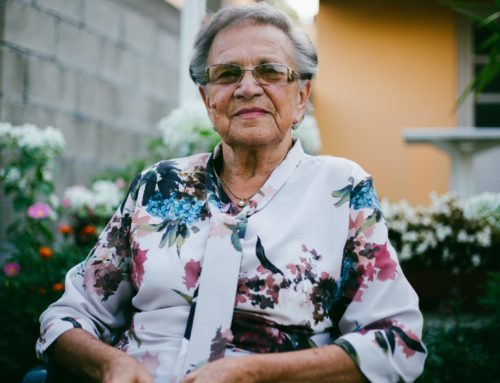Did you know unintentional injuries are a leading cause of visits to hospital emergency departments (ED), and are often attributed to disability and even death?
Of the 130 million ED visits in 2010, approximately 29.3 million were attributed to unintentional injuries, according to a 2013 report released by the Centers for Disease Control and Prevention (CDC). Included in the number were fractures, sprains and strains, open wounds, contusions, burns, suffocation, choking, drowning, poisoning and other types of trauma and complications.
Of notable concern is that injuries due to falls account for approximately one-third of the 29.3 million injuries. And while people age 15 and younger are more likely to visit an ED (25.5 million) than people age 65 and older (19.5 million), falls pose an especially serious health risk to older people.
Treatment can be quite expensive and adversely affect an older person’s quality of life by drastically reducing their independence. In 2010, about 21,700 older adults died from unintentional fall injuries.
As one of the nation’s leading providers of home care services,
Compassionate Home Care Partners recognize the importance of a safe living environment and offer a suite of medical alert systems.
Clinical studies indicate that use of monitored Personal Emergency Response Systems (PERS) reduce mortality rates by nearly four times, reduce hospital utilization by 59 percent, and yield a positive benefit-to-cost ratio of over seven to one (every dollar spent on PERS results in $7.19 in health care cost savings).
Specific safety measures may vary based on a person’s age, but there are many similarities between creating a safe living environment for young kids and older adults.
Many precautionary measures to enhance safety and help prevent injuries are inexpensive and simple to take. In this edition of Compassionate Care, we share information and insight to help you and your loved ones enhance safety in and around the home.
Home Safety Considerations
Regardless of whether people in your home are toddlers, elderly or somewhere in between, we suggest the following:
- Prevent slips and trips (e.g., carpets, curbs/steps, uneven surfaces, door thresholds, obstructions).
- Secure furniture that may accidentally tip over if grabbed or used to catch your balance.
- Ensure medications are properly stored, dosed and taken.
- Avoid injury in the kitchen and bathroom.
Other safety considerations include:
- Do not overload extension cords or create a fire hazard by using a light duty cord for a heavy duty appliance (e.g., air conditioning unit, humidifier, space heater).
- Use a step-stool or ladder with extra care so as not to lose balance.
- Limit the weight of things you pick-up or carry so as not to strain or injure yourself.
- Allow time for your vision to adjust when going from light to dark and vice versa.
- Wait a few seconds before walking when standing up to reduce the chance of losing your balance.
- Have adequate lighting, especially near an entryway and stairs.
- Keep firearms and potentially harmful chemicals/cleaners in a secure location.
- Install smoke alarms and carbon monoxide (CO) detectors and change the batteries in the spring and fall.
- Be careful with candles, lighters/matches and cigarettes.
- Have an escape plan in the event of an emergency.
- Use caller ID/answering machine to screen calls. People calling to solicit or scam are unlikely to leave a message.
Prevention is Key
Safety experts suggest that 90% of accidents are preventable. Being that most people are accustomed to their home, it may be helpful to have someone who is unfamiliar with your living environment, such as a Compassionate Home Care Partners caregiver, walk around your house to identify potential hazards you may have overlooked.
Additional resources are listed below:
- AARP
- Centers for Disease Control and Prevention
- Consumer Product Safety Council
- U.S. Fire Administration

Compassionate Home Care Partners of Polk County Florida offers a complete continuum of home healthcare services, similar to the care and support often provided by family members. Services include non-medical care, companionship, personal care* and medical services*. Our flexible care plans are tailored to fit our clients’ specific needs and budgets. To learn more about Compassionate Home Care Partners and get answers to your question call us at (863) 271-7776.






